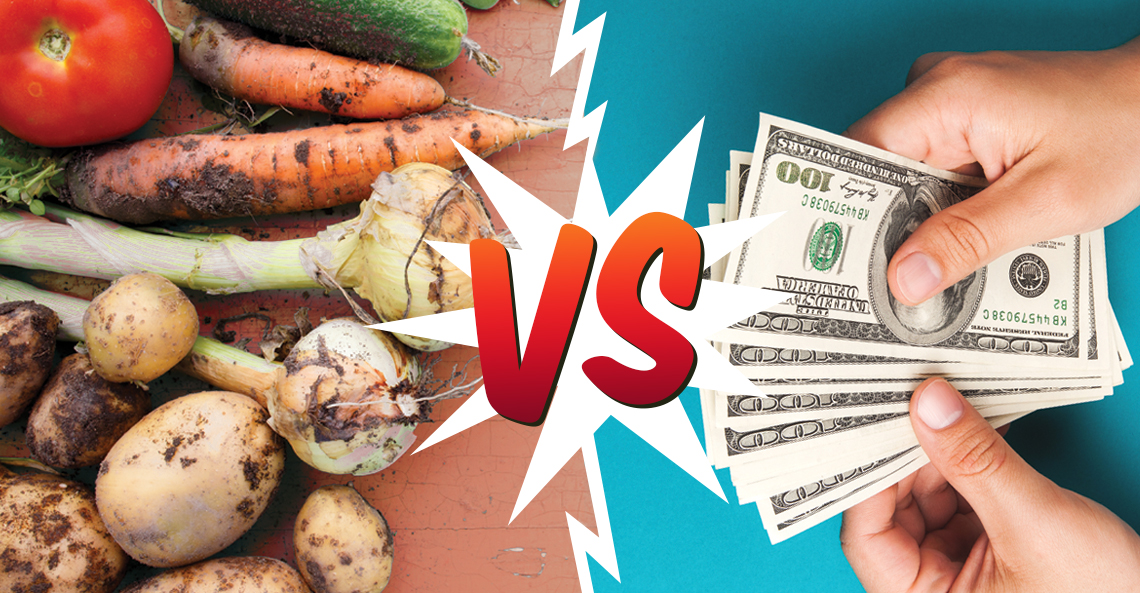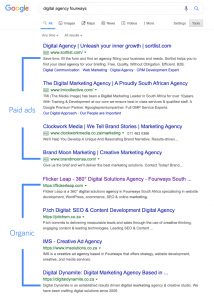
The difference between organic and paid search
Our trusted source of information, known as Google, outputs the most relevant website content to the search query that is entered in the search bar. I’m sure you’ve noticed the results consist of two different kinds of sources – paid searches (ads) and below that the organic searches. Let’s chat about the difference between organic and paid search.
What’s the difference between organic and paid search?
Paid search
Paid searches are those that pay to have their website displayed at the top of search engine results when a search query entered has certain keywords or phrases.
Organic search
Organic searches are websites that appear at the top of search engine results, purely based on the quality and relevancy of content on the website to the search query entered.
Now that you have a basic understanding of both, let’s break it down and go into some of the pros and cons of these two types of search results.
Paid searches – pros
- Time: paid results make the top of the ranking as soon as payment for the ad placement is made – there is no waiting period.
- Targeting: you are able to tailor your PPC campaigns to reach specific audiences. You have the ability to specify details like location, age, education level, income, marital status, etc.
- High purchase intent: your product or service will appear before another website’s, so if you execute a well thought out campaign when it comes to products or services, you are more likely to reach a visitor with a high purchase intent if your ad matches their requirements.
Organic searches – pros
- Authority and credibility: earning high rankings on search engines following proper SEO practices earns you authority and credibility. Google considers you a reliable source of information.
- Longevity: After achieving high ranking, it’s easier to hang onto it. Continuing to use SEO processes will assist in maintaining your spot.
- Cost: there is no cost involved, unless you make use of external resources.
- Click through rates: having reliable and trustworthy content means you will feature on the first page more often, which will earn you more clicks and involvement from users.
Paid searches – cons
- Cost: paid searches are PPC (pay-per-click) campaigns, which could result in you having to spend a hefty amount as you would also need to bid on keywords. The cost of these words would differ, depending on how competitive the keyword is.
- Longevity: the position of your ad will only remain in place as long as you keep spending. Once you stop, the ad will disappear.
- Skepticism: visitors seeking information don’t often trust ads and are skeptical when it comes to clicking on them.
Organic searches – cons
- Time: achieving high rankings requires a lot of work and could take months or even years depending on the keywords involved and content structure.
- Resources: ranking high requires you to create highly SEO-focussed content. You may also need to make use of external SEO resources. As much as the results pay off, it can prove to be difficult and time consuming.
Which should you use?
As you can tell from the pros and cons comparison, they both help you achieve the same goal, but the journey is what differentiates the two. Pertaining to the question at hand, which should you use? The answer is… both. Ideally making use of both organic and paid search as this will help you to stay competitive. While you work on your organic SEO, running PPC campaigns to gain some traffic and customers could prove to be beneficial for business.




This Post Has 0 Comments